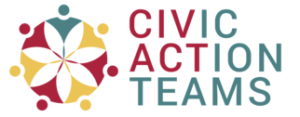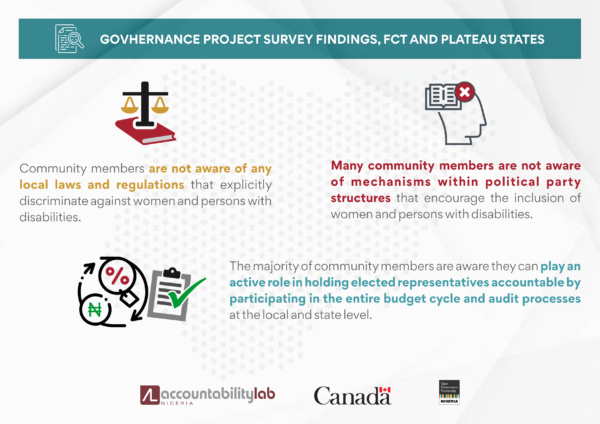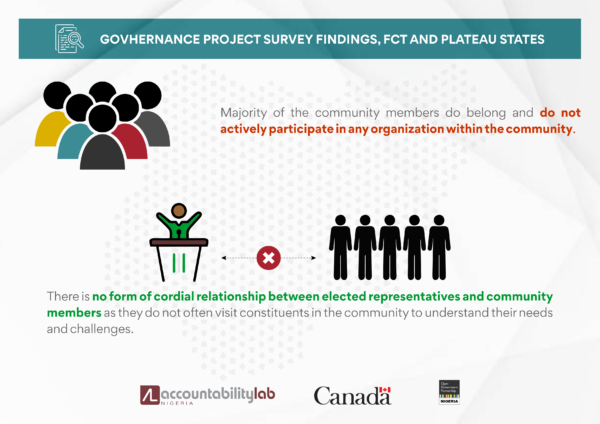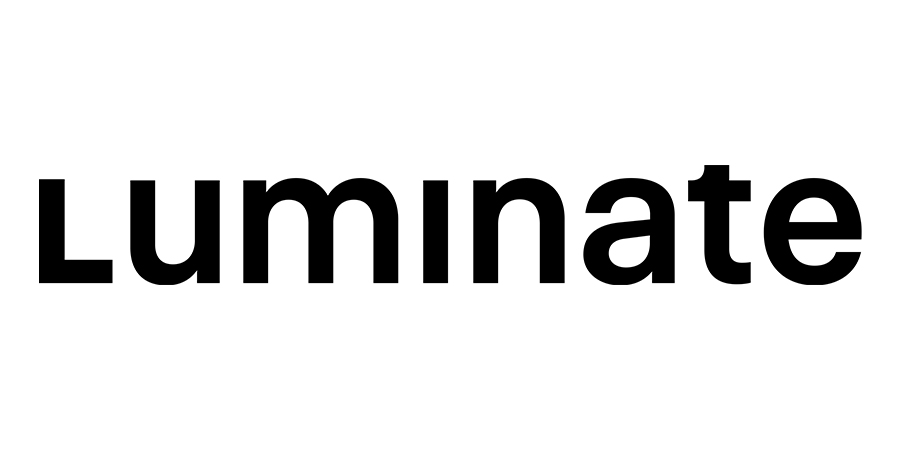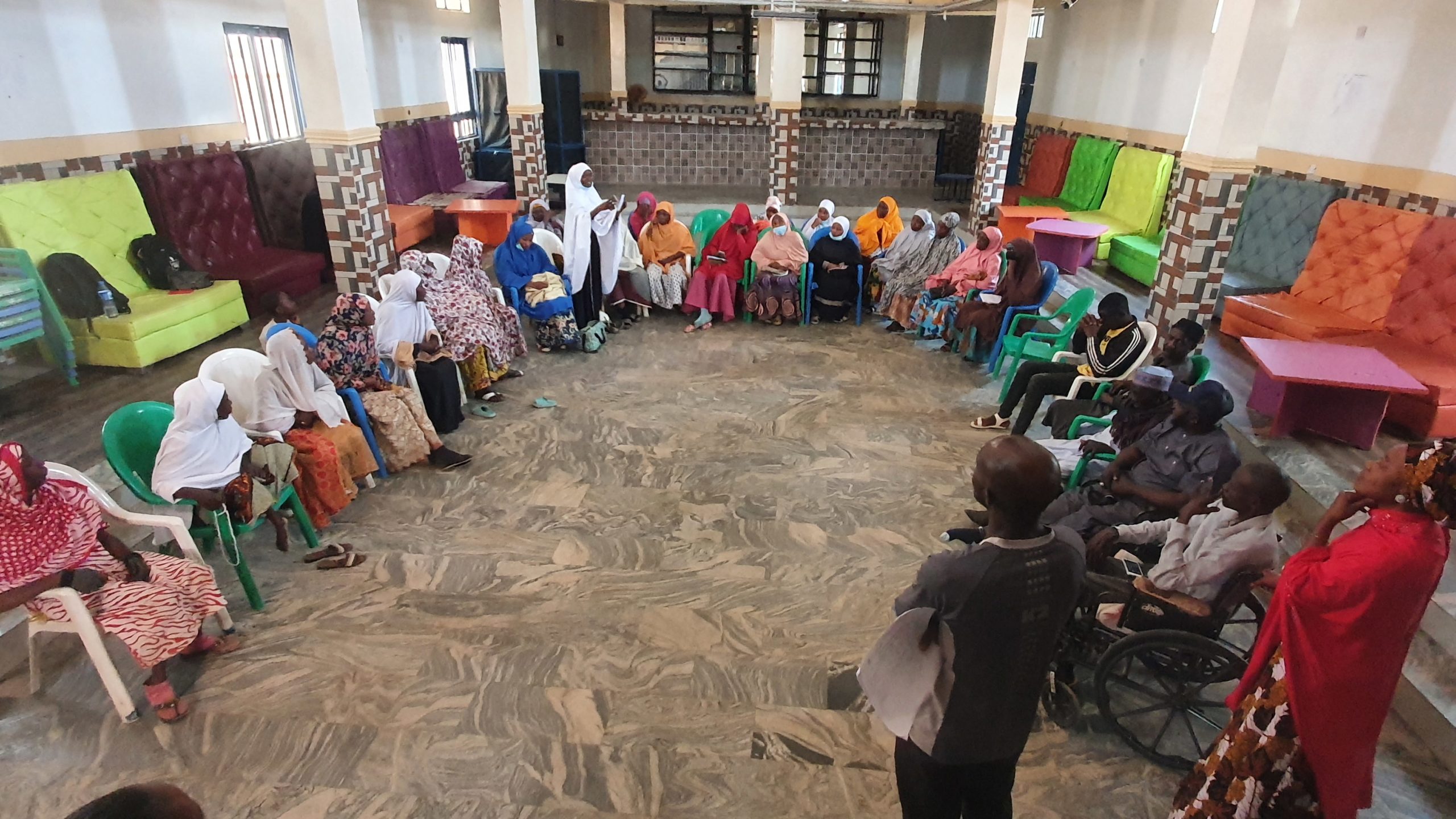
Gov-Her-Nance in Nigeria
Written by:
Promoting people with disabilities and women’s civic participation in Nigeria
The Problem
Nigeria has an unbalanced decision-making process and governance structure with less than 8% of women in the National Assembly, reflecting one of the lowest numbers of female legislators in the world. Traditional gender roles and deep-seated cultural norms have led to the perception that women and PWDs are not suited for leadership roles.
In addition, because citizens and communities are rarely consulted about decisions that affect their lives, they often lack the information they need to engage with their constituencies in meaningful ways. Many women are not aware of existing gender policies, for example, and PWDs are disconnected from the provisions of the Disability Act. This leads to a lack of inclusive governance and threatened livelihoods.
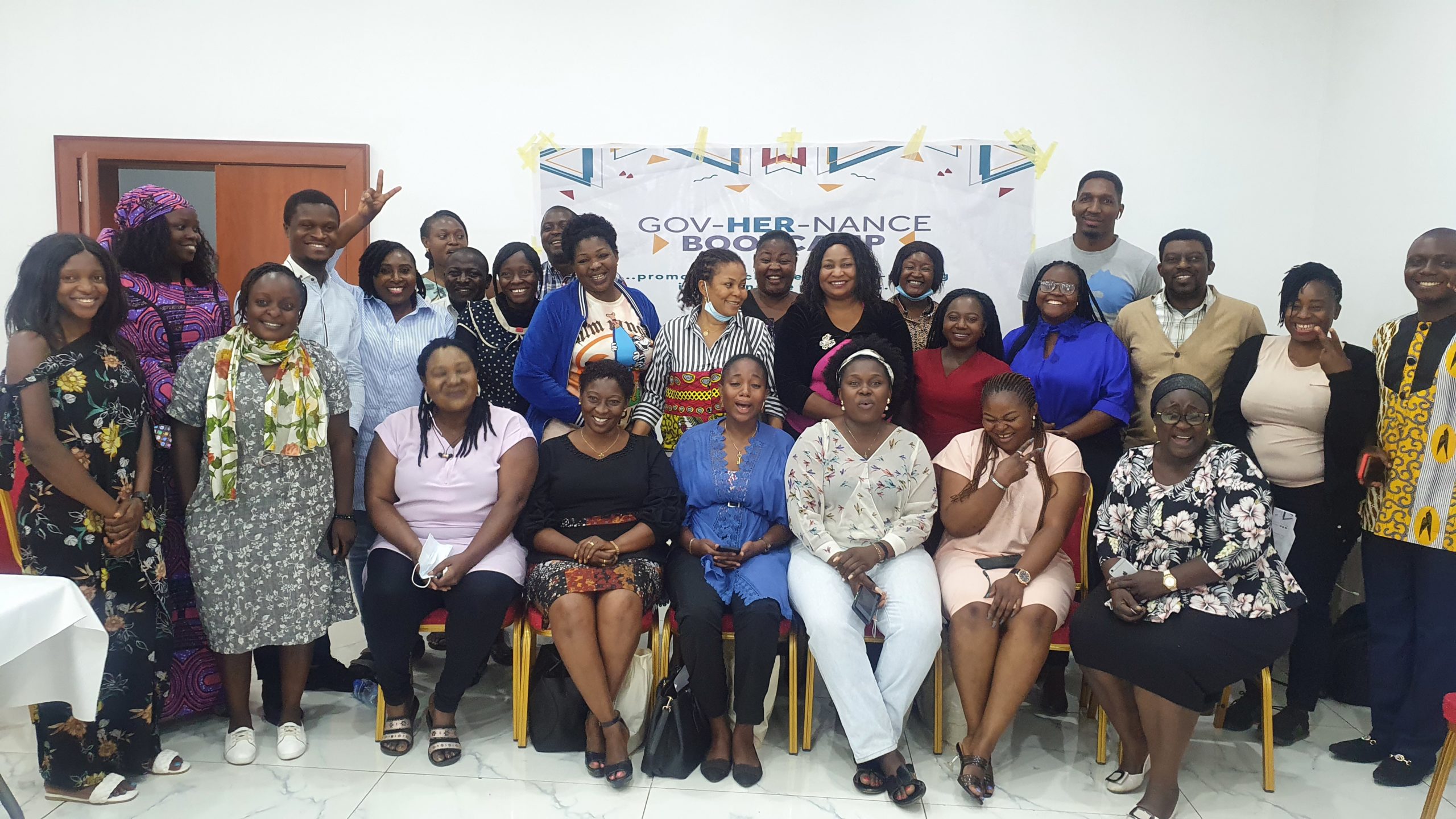
The Solution
We are addressing gaps in understanding around the challenges facing women and PWDs and preventing them from being represented in the Nigerian government. We conducted visits to 3 communities (Kabong, Gangare, and Dahwol Giring) in Jos North and Jos South, to support this work and have created a number of program interventions:
- Gov-Her-Nance Bootcamps
We are building relevant grassroot coalitions around accountability through the Gov-Her-Nance Bootcamp we launched in Jos, Plateau State. It includes a series of context specific advocacy training worrkshops and brainstorming sessions among stakeholders in target communities to find more practical ways to include women and PWDs in governance processes.
- Community Frontline Activists
We’re training activists from target communities to collect data at the local level in order to create a shared basis of understanding around gender and other inequities. We feed validated information from power holders to communities, thereby facilitating conversations about key inclusion and gender-related concerns.
- Stakeholder engagement and Town Hall meetings
We conducted extensive consultations with both state and non-state actors for community entry. We also maintain regular engagement with PWDs, women-Led organizations, CSOs and journalists on inclusive governance and gender issues through town halls in diverse communities.
- Targeted communications
We launched an ongoing radio show titled on Jay 101.9FM Jos, to discuss our findings on these issues with communities and gather valuable feedback from affected citizens.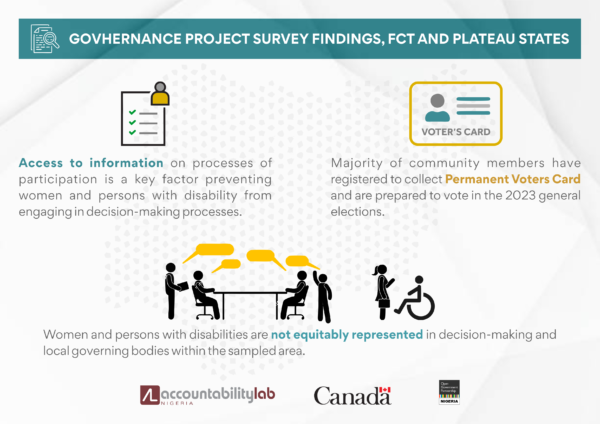
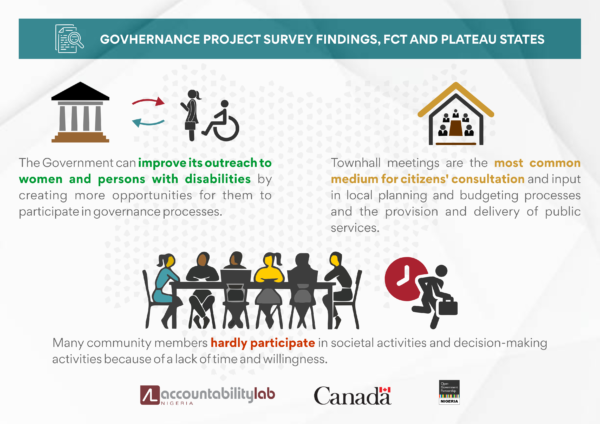
“I always say that building institutions is the best we can do. You can have strong personalities, but the personalities don’t actually function on their own, the system must get itself working. And I think it’s best to actually build institutions that can check themselves out. That’s why I’m talking about getting the Federal Character Commission to have a person living with a disability as part of it.”
– Dr Nentawe Yilwatda, former INEC Commissioner for Benue state
Further reading:
- NGO trains Plateau women, PLWD on inclusive governance
- NGO sensitizes stakeholders in Plateau state on inclusive governance
- Group canvasses inclusion of women, physically challenged in governance
- NGO sensitizes stakeholders on inclusive governance in Plateau

